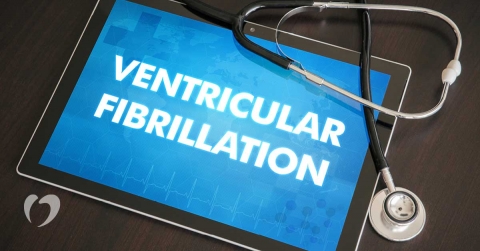Ventricular Fibrillation

Ventricular fibrillation is a very serious type of heart rhythm issue. Normally, the heart pumps blood based on a series of contractions stimulated by the sinus node, the heart’s natural pacemaker. In ventricular fibrillation, the heart beats rapidly and in a disorganized manner. The ventricles, or lower heart chambers, quiver and are unable to pump blood to the rest of the body. Without treatment, this results in sudden cardiac death.
Signs and symptoms
Ventricular fibrillation is a medical emergency that needs immediate treatment. The most common sign of ventricular fibrillation is collapse and sudden loss of consciousness. If you witness these symptoms, call 911 immediately.
There are several warning signs that may occur before loss of consciousness, including chest pain, shortness of breath, rapid heartbeat, and dizziness. These symptoms indicate the need for medical attention.
Treatment
Death can occur quickly in ventricular fibrillation. People who have collapsed need CPR immediately, and it must be continued until an AED (automated external defibrillator) is available to shock the patient in hopes of restoring a normal heart rhythm. If you have witnessed someone collapse and they do not have a pulse, call 911 and begin CPR. Current recommendations include hands-only CPR with no rescue breaths. Hard, fast compressions should be given at a rate of 100 to 120 compressions per minute.
Causes
Ventricular fibrillation can happen for several reasons, and sometimes the cause isn’t known. Trauma that disrupts the flow of blood to the heart or problems with the heart’s electrical system are two possible causes.
Other risk factors include:
- congenital heart disease
- previous episodes of ventricular fibrillation or heart attack
- injuries that cause damage to the heart
- drug abuse
Ventricular fibrillation is much more serious than atrial fibrillation but also much less common. It is the leading cause of sudden cardiac death. It’s important to be aware of the signs and symptoms and to get immediate treatment if you recognize the symptoms in others. If you have questions about your risk for ventricular fibrillation or have symptoms of a less-serious arrhythmia, contact the Heart Rhythm Institute at Oklahoma Heart Hospital for an appointment to discuss your heart health.




